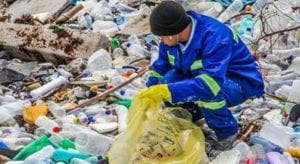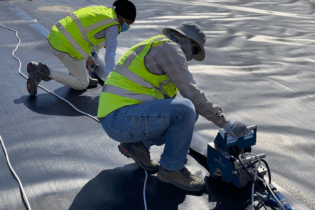September is National Clean-up Month and South Africans nationwide are joining the waste free movement to clean up beaches and rivers.
In partnership with Plastics SA for Clean-up and Recycle Week (10 to 15 September), Coca-Cola’s bottling partners are leading over 14 clean ups across the country reaching as far as Mamelodi and Soweto to Durban and Muizenberg. This coincides with International Coastal Cleanup Day on 15 September 2018. Earlier this year, the Coca-Cola Company announced an ambitious goal to help collect and recycle the equivalent of every bottle and can it sells globally by 2030 through its World Without Waste strategy. This would include making packaging 100% recyclable globally by 2020. In South Africa, the company is working to support healthy, debris-free environments and oceans through organisations such as PETCO (PET Recycling Company), to increase collection and recycling of packaging in the most risk-prone areas for marine debris. Coastal Clean-ups are taking place in Kwa-Zulu Natal in Port Shepstone, Durban and Richard’s Bay as well as in the Eastern Cape in Port Elizabeth and East London. Inland clean-ups include Grabouw, Soweto, Mamelodi, and Soshanguve. Coca-Cola Penninsula Beverages will coordinate the Muizenberg beach clean-up on 16 September. Coca-Cola Beverages South Africa is partnering with a number of NGOs, local municipalities, regional government departments, as well as the South African Police Services in areas to mobilise communities to take part in the clean-up. CCBSA also includes schools that are involved in the Schools Recycling Programme to join in the initiative.The International Coastal Cleanup on 15 September was started over 30 years ago by Ocean Conservancy and has since mobilised millions of people to participate in the world’s largest volunteer effort to help clean our oceans and waterways. Last year, Plastics SA co-ordinated over 400 clean ups nationwide during Clean-up and Recycle Week with over 16 000 volunteers.
The South African plastic industry last year recycled a record 2.15 billion PET plastic bottles. The country has seen an increase in PET recycling from single digits in 2000 to 65% in 2017, close to European rates and rates that exceed United States recycling by more than 20%. This has created 64 000 income-generating opportunities for waste pickers, collectors and recyclers. The 93 235 tonnes of collected PET also saved 578 000m3 of landfill space and 139 000 tonnes of carbon.






